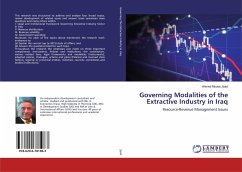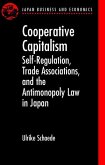Extractive Industries
The Management of Resources as a Driver of Sustainable Development
Herausgeber: Addison, Tony; Roe, Alan
Extractive Industries
The Management of Resources as a Driver of Sustainable Development
Herausgeber: Addison, Tony; Roe, Alan
- Gebundenes Buch
- Merkliste
- Auf die Merkliste
- Bewerten Bewerten
- Teilen
- Produkt teilen
- Produkterinnerung
- Produkterinnerung
This book is about the challenges and opportunities facing developing countries in using their extractive industries to achieve inclusive and sustainable development. It recognizes explicitly the greatly increased importance of mining, oil, and gas in many lower income countries.
Andere Kunden interessierten sich auch für
![Service Industries in Developing Countries Service Industries in Developing Countries]() Erdener KaynakService Industries in Developing Countries192,99 €
Erdener KaynakService Industries in Developing Countries192,99 €![The Rural Industries Round Oxford: A Survey Made On Behalf of the Institute for Research in Agricultural Economics, University of Oxford The Rural Industries Round Oxford: A Survey Made On Behalf of the Institute for Research in Agricultural Economics, University of Oxford]() Katharine Seymour WoodsThe Rural Industries Round Oxford: A Survey Made On Behalf of the Institute for Research in Agricultural Economics, University of Oxford35,99 €
Katharine Seymour WoodsThe Rural Industries Round Oxford: A Survey Made On Behalf of the Institute for Research in Agricultural Economics, University of Oxford35,99 €![Economies of Network Industries Economies of Network Industries]() Hans Werner GottingerEconomies of Network Industries197,99 €
Hans Werner GottingerEconomies of Network Industries197,99 €![Corporate Social Responsibility and Canada's Role in Africa's Extractive Sectors Corporate Social Responsibility and Canada's Role in Africa's Extractive Sectors]() Corporate Social Responsibility and Canada's Role in Africa's Extractive Sectors102,99 €
Corporate Social Responsibility and Canada's Role in Africa's Extractive Sectors102,99 €![Directory and Hand-book of the Meat and Provision Trades and Their Allied Industries for the United States and Canada [microform] Directory and Hand-book of the Meat and Provision Trades and Their Allied Industries for the United States and Canada [microform]]() Directory and Hand-book of the Meat and Provision Trades and Their Allied Industries for the United States and Canada [microform]42,99 €
Directory and Hand-book of the Meat and Provision Trades and Their Allied Industries for the United States and Canada [microform]42,99 €![Governing Modalities of the Extractive Industry in Iraq Governing Modalities of the Extractive Industry in Iraq]() Ahmed Mousa JiyadGoverning Modalities of the Extractive Industry in Iraq50,99 €
Ahmed Mousa JiyadGoverning Modalities of the Extractive Industry in Iraq50,99 €![Cooperative Capitalism Cooperative Capitalism]() Ulrike SchaedeCooperative Capitalism274,99 €
Ulrike SchaedeCooperative Capitalism274,99 €-
-
-
This book is about the challenges and opportunities facing developing countries in using their extractive industries to achieve inclusive and sustainable development. It recognizes explicitly the greatly increased importance of mining, oil, and gas in many lower income countries.
Hinweis: Dieser Artikel kann nur an eine deutsche Lieferadresse ausgeliefert werden.
Hinweis: Dieser Artikel kann nur an eine deutsche Lieferadresse ausgeliefert werden.
Produktdetails
- Produktdetails
- Verlag: Hurst & Co.
- Seitenzahl: 766
- Erscheinungstermin: 20. November 2018
- Englisch
- Abmessung: 236mm x 155mm x 48mm
- Gewicht: 1315g
- ISBN-13: 9780198817369
- ISBN-10: 0198817363
- Artikelnr.: 52821339
- Verlag: Hurst & Co.
- Seitenzahl: 766
- Erscheinungstermin: 20. November 2018
- Englisch
- Abmessung: 236mm x 155mm x 48mm
- Gewicht: 1315g
- ISBN-13: 9780198817369
- ISBN-10: 0198817363
- Artikelnr.: 52821339
Tony Addison is the Chief Economist/Deputy Director of the United Nations University's World Institute for Development Economics Research (UNU-WIDER) in Helsinki, Finland. He was previously Professor of Development Studies at the University of Manchester, Executive Director of the Brooks World Poverty Institute (BWPI) at the University of Manchester, and Associate Director of the Chronic Poverty Research Centre (CPRC). He has also held positions at the University of Warwick, the School of Oriental and African Studies (London University), and the Overseas Development Institute (London). He has published widely in books and journals on the issues of post-conflict reconstruction, debt relief, fiscal policy, poverty dynamics, development finance, and foreign aid. Alan Roe has worked for more than 45 years as an academic economist and as a policy adviser. Early in his career he was a research economist at the University of Dar-es-Salaam and then at the University of Cambridge (Economic Growth Project) and later a Visiting Professor of Economics at Washington University in the USA. He then taught economics for many years at the University of Warwick where he was also for a period the Chairman of Department. In 1994 he was appointed Principal Economist at the World Bank where he worked for 7 years. After retiring from the Bank in 2000, he returned part-time to Warwick University but also joined Oxford Policy Management (OPM) as Principal Economist and a Board Director. In this capacity he helped to initiate OPM's involvement in natural resources issues. Now retired he remains as a Senior Associate at both OPM and the University of Warwick and a Senior Non-Resident Research Fellow at UNU-WIDER.
* Part I: Overview
* 1: Tony Addison and Alan Roe: Extractives for development:
introduction and ten main messages
* Part II: Minerals and Oil and Gas in the Global Context
* 2: Alan Roe and Samantha Dodd: Dependence on extractive industries in
lower-income countries: the statistical tendencies
* 3: Magnus Ericsson and Olof Löf: Mining's contribution to low- and
middle-income economies
* 4: Paul Stevens: The role of oil and gas in the economic development
of the global economy
* Part III: The Academic Literature and the Resources Curse
* 5: Glada Lahn and Paul Stevens: The curse of the one-size-fits-all
fix: re-evaluating what we know about extractives and economic
development
* 6: Evelyn Dietsche: Political economy and governance
* 7: Evelyn Dietsche: New industrial policy and the extractive
industries
* Part IV: Policy Challenges in the Macro-Management of Extractives
* 8: Mark Henstridge and Alan Roe: The macroeconomic management of
natural resources
* 9: Frederick van der Ploeg and Anthony J. Venables: Extractive
revenues and government spending: short- versus long-term
considerations
* 10: Andres Solimano and Diego Calderón Guajardo: The copper sector,
fiscal rules, and stabilization funds in Chile: scope and limits
* 11: Mahamudu Bawumia and Håvard Halland: Oil discovery and
macroeconomic management: The recent Ghanaian experience
* Part V: National Institutions of Extractives Management
* 12: Tony Addison and Alan Roe: The regulation of extractives: an
overview
* 13: Toni Aubynn: Regulatory structures and challenges to
developmental extractives: Some practical observations from Ghana
* 14: James M. Otto: The taxation of extractive industries: mining
* 15: Patrick R.P. Heller: Doubling down: national oil companies as
instruments of risk and reward
* 16: Ruth Greenspan Bell: Protecting the environment during and after
resource extraction
* 17: Kathryn McPhail: Enhancing sustainable development from oil, gas,
and mining: from an 'all of government' approach to Partnerships for
Development
* Part VI: International Regulatory Concerns and Structures
* 18: R. Anthony Hodge: Towards contribution analysis
* 19: James Cust: The role of governance and international norms for
managing natural resources
* 20: Kathryn Tomlinson: Oil and gas companies and the management of
social and environmental impacts and issues: the evolution of the
industry's approach
* 21: Catherine Macdonald: The role of gender in the extractive
industries
* 22: Tony Addison: Climate change and the extractives sector
* Part VII: Leveraging the Direct Impacts of Extractives Into
Sustainable Development
* 23: Alan Roe and Jeffery Round: Framework: the channels for indirect
impacts
* 24: Olle Östensson: Local content, supply chains, and shared
infrastructure
* 25: Olle Östensson and Anton Löf: Downstream activities: the
possibilities and the realities
* 26: Sophie Witter and Maja Jakobsen: Choices for spending government
revenue: new African oil, gas, and mining economies
* 27: Joanna Buckley, Neil McCulloch, and Nicholas Travis:
Donor-supported approaches to improving extractives governance:
lessons from Nigeria
* Part VIII: Capturing Economic and Social Benefits at Community Level
* 28: Catherine McDonald: The role of participation in sustainable
community development programmes in the extractives industries
* 29: Angel Mondoloka: Approaches to supporting local and community
development: the view from Zambia
* 30: Liesel Filgueiras, Andreia Rabetim, and Isabel Aché: Approaches
to supporting local and community development: Brazil and the Vale SA
model of corporate interaction
* 31: Keith Slack: Capturing economic and social benefits at the
community level: opportunities and obstacles for civil society
* 32: James M. Otto: How do we legislate for improved community
development?
* 33: Tony Addison and Alan Roe: Conclusions
* 1: Tony Addison and Alan Roe: Extractives for development:
introduction and ten main messages
* Part II: Minerals and Oil and Gas in the Global Context
* 2: Alan Roe and Samantha Dodd: Dependence on extractive industries in
lower-income countries: the statistical tendencies
* 3: Magnus Ericsson and Olof Löf: Mining's contribution to low- and
middle-income economies
* 4: Paul Stevens: The role of oil and gas in the economic development
of the global economy
* Part III: The Academic Literature and the Resources Curse
* 5: Glada Lahn and Paul Stevens: The curse of the one-size-fits-all
fix: re-evaluating what we know about extractives and economic
development
* 6: Evelyn Dietsche: Political economy and governance
* 7: Evelyn Dietsche: New industrial policy and the extractive
industries
* Part IV: Policy Challenges in the Macro-Management of Extractives
* 8: Mark Henstridge and Alan Roe: The macroeconomic management of
natural resources
* 9: Frederick van der Ploeg and Anthony J. Venables: Extractive
revenues and government spending: short- versus long-term
considerations
* 10: Andres Solimano and Diego Calderón Guajardo: The copper sector,
fiscal rules, and stabilization funds in Chile: scope and limits
* 11: Mahamudu Bawumia and Håvard Halland: Oil discovery and
macroeconomic management: The recent Ghanaian experience
* Part V: National Institutions of Extractives Management
* 12: Tony Addison and Alan Roe: The regulation of extractives: an
overview
* 13: Toni Aubynn: Regulatory structures and challenges to
developmental extractives: Some practical observations from Ghana
* 14: James M. Otto: The taxation of extractive industries: mining
* 15: Patrick R.P. Heller: Doubling down: national oil companies as
instruments of risk and reward
* 16: Ruth Greenspan Bell: Protecting the environment during and after
resource extraction
* 17: Kathryn McPhail: Enhancing sustainable development from oil, gas,
and mining: from an 'all of government' approach to Partnerships for
Development
* Part VI: International Regulatory Concerns and Structures
* 18: R. Anthony Hodge: Towards contribution analysis
* 19: James Cust: The role of governance and international norms for
managing natural resources
* 20: Kathryn Tomlinson: Oil and gas companies and the management of
social and environmental impacts and issues: the evolution of the
industry's approach
* 21: Catherine Macdonald: The role of gender in the extractive
industries
* 22: Tony Addison: Climate change and the extractives sector
* Part VII: Leveraging the Direct Impacts of Extractives Into
Sustainable Development
* 23: Alan Roe and Jeffery Round: Framework: the channels for indirect
impacts
* 24: Olle Östensson: Local content, supply chains, and shared
infrastructure
* 25: Olle Östensson and Anton Löf: Downstream activities: the
possibilities and the realities
* 26: Sophie Witter and Maja Jakobsen: Choices for spending government
revenue: new African oil, gas, and mining economies
* 27: Joanna Buckley, Neil McCulloch, and Nicholas Travis:
Donor-supported approaches to improving extractives governance:
lessons from Nigeria
* Part VIII: Capturing Economic and Social Benefits at Community Level
* 28: Catherine McDonald: The role of participation in sustainable
community development programmes in the extractives industries
* 29: Angel Mondoloka: Approaches to supporting local and community
development: the view from Zambia
* 30: Liesel Filgueiras, Andreia Rabetim, and Isabel Aché: Approaches
to supporting local and community development: Brazil and the Vale SA
model of corporate interaction
* 31: Keith Slack: Capturing economic and social benefits at the
community level: opportunities and obstacles for civil society
* 32: James M. Otto: How do we legislate for improved community
development?
* 33: Tony Addison and Alan Roe: Conclusions
* Part I: Overview
* 1: Tony Addison and Alan Roe: Extractives for development:
introduction and ten main messages
* Part II: Minerals and Oil and Gas in the Global Context
* 2: Alan Roe and Samantha Dodd: Dependence on extractive industries in
lower-income countries: the statistical tendencies
* 3: Magnus Ericsson and Olof Löf: Mining's contribution to low- and
middle-income economies
* 4: Paul Stevens: The role of oil and gas in the economic development
of the global economy
* Part III: The Academic Literature and the Resources Curse
* 5: Glada Lahn and Paul Stevens: The curse of the one-size-fits-all
fix: re-evaluating what we know about extractives and economic
development
* 6: Evelyn Dietsche: Political economy and governance
* 7: Evelyn Dietsche: New industrial policy and the extractive
industries
* Part IV: Policy Challenges in the Macro-Management of Extractives
* 8: Mark Henstridge and Alan Roe: The macroeconomic management of
natural resources
* 9: Frederick van der Ploeg and Anthony J. Venables: Extractive
revenues and government spending: short- versus long-term
considerations
* 10: Andres Solimano and Diego Calderón Guajardo: The copper sector,
fiscal rules, and stabilization funds in Chile: scope and limits
* 11: Mahamudu Bawumia and Håvard Halland: Oil discovery and
macroeconomic management: The recent Ghanaian experience
* Part V: National Institutions of Extractives Management
* 12: Tony Addison and Alan Roe: The regulation of extractives: an
overview
* 13: Toni Aubynn: Regulatory structures and challenges to
developmental extractives: Some practical observations from Ghana
* 14: James M. Otto: The taxation of extractive industries: mining
* 15: Patrick R.P. Heller: Doubling down: national oil companies as
instruments of risk and reward
* 16: Ruth Greenspan Bell: Protecting the environment during and after
resource extraction
* 17: Kathryn McPhail: Enhancing sustainable development from oil, gas,
and mining: from an 'all of government' approach to Partnerships for
Development
* Part VI: International Regulatory Concerns and Structures
* 18: R. Anthony Hodge: Towards contribution analysis
* 19: James Cust: The role of governance and international norms for
managing natural resources
* 20: Kathryn Tomlinson: Oil and gas companies and the management of
social and environmental impacts and issues: the evolution of the
industry's approach
* 21: Catherine Macdonald: The role of gender in the extractive
industries
* 22: Tony Addison: Climate change and the extractives sector
* Part VII: Leveraging the Direct Impacts of Extractives Into
Sustainable Development
* 23: Alan Roe and Jeffery Round: Framework: the channels for indirect
impacts
* 24: Olle Östensson: Local content, supply chains, and shared
infrastructure
* 25: Olle Östensson and Anton Löf: Downstream activities: the
possibilities and the realities
* 26: Sophie Witter and Maja Jakobsen: Choices for spending government
revenue: new African oil, gas, and mining economies
* 27: Joanna Buckley, Neil McCulloch, and Nicholas Travis:
Donor-supported approaches to improving extractives governance:
lessons from Nigeria
* Part VIII: Capturing Economic and Social Benefits at Community Level
* 28: Catherine McDonald: The role of participation in sustainable
community development programmes in the extractives industries
* 29: Angel Mondoloka: Approaches to supporting local and community
development: the view from Zambia
* 30: Liesel Filgueiras, Andreia Rabetim, and Isabel Aché: Approaches
to supporting local and community development: Brazil and the Vale SA
model of corporate interaction
* 31: Keith Slack: Capturing economic and social benefits at the
community level: opportunities and obstacles for civil society
* 32: James M. Otto: How do we legislate for improved community
development?
* 33: Tony Addison and Alan Roe: Conclusions
* 1: Tony Addison and Alan Roe: Extractives for development:
introduction and ten main messages
* Part II: Minerals and Oil and Gas in the Global Context
* 2: Alan Roe and Samantha Dodd: Dependence on extractive industries in
lower-income countries: the statistical tendencies
* 3: Magnus Ericsson and Olof Löf: Mining's contribution to low- and
middle-income economies
* 4: Paul Stevens: The role of oil and gas in the economic development
of the global economy
* Part III: The Academic Literature and the Resources Curse
* 5: Glada Lahn and Paul Stevens: The curse of the one-size-fits-all
fix: re-evaluating what we know about extractives and economic
development
* 6: Evelyn Dietsche: Political economy and governance
* 7: Evelyn Dietsche: New industrial policy and the extractive
industries
* Part IV: Policy Challenges in the Macro-Management of Extractives
* 8: Mark Henstridge and Alan Roe: The macroeconomic management of
natural resources
* 9: Frederick van der Ploeg and Anthony J. Venables: Extractive
revenues and government spending: short- versus long-term
considerations
* 10: Andres Solimano and Diego Calderón Guajardo: The copper sector,
fiscal rules, and stabilization funds in Chile: scope and limits
* 11: Mahamudu Bawumia and Håvard Halland: Oil discovery and
macroeconomic management: The recent Ghanaian experience
* Part V: National Institutions of Extractives Management
* 12: Tony Addison and Alan Roe: The regulation of extractives: an
overview
* 13: Toni Aubynn: Regulatory structures and challenges to
developmental extractives: Some practical observations from Ghana
* 14: James M. Otto: The taxation of extractive industries: mining
* 15: Patrick R.P. Heller: Doubling down: national oil companies as
instruments of risk and reward
* 16: Ruth Greenspan Bell: Protecting the environment during and after
resource extraction
* 17: Kathryn McPhail: Enhancing sustainable development from oil, gas,
and mining: from an 'all of government' approach to Partnerships for
Development
* Part VI: International Regulatory Concerns and Structures
* 18: R. Anthony Hodge: Towards contribution analysis
* 19: James Cust: The role of governance and international norms for
managing natural resources
* 20: Kathryn Tomlinson: Oil and gas companies and the management of
social and environmental impacts and issues: the evolution of the
industry's approach
* 21: Catherine Macdonald: The role of gender in the extractive
industries
* 22: Tony Addison: Climate change and the extractives sector
* Part VII: Leveraging the Direct Impacts of Extractives Into
Sustainable Development
* 23: Alan Roe and Jeffery Round: Framework: the channels for indirect
impacts
* 24: Olle Östensson: Local content, supply chains, and shared
infrastructure
* 25: Olle Östensson and Anton Löf: Downstream activities: the
possibilities and the realities
* 26: Sophie Witter and Maja Jakobsen: Choices for spending government
revenue: new African oil, gas, and mining economies
* 27: Joanna Buckley, Neil McCulloch, and Nicholas Travis:
Donor-supported approaches to improving extractives governance:
lessons from Nigeria
* Part VIII: Capturing Economic and Social Benefits at Community Level
* 28: Catherine McDonald: The role of participation in sustainable
community development programmes in the extractives industries
* 29: Angel Mondoloka: Approaches to supporting local and community
development: the view from Zambia
* 30: Liesel Filgueiras, Andreia Rabetim, and Isabel Aché: Approaches
to supporting local and community development: Brazil and the Vale SA
model of corporate interaction
* 31: Keith Slack: Capturing economic and social benefits at the
community level: opportunities and obstacles for civil society
* 32: James M. Otto: How do we legislate for improved community
development?
* 33: Tony Addison and Alan Roe: Conclusions
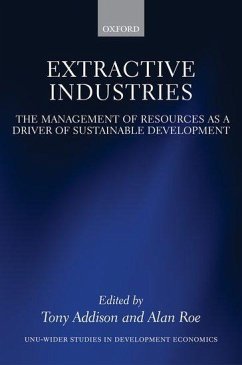
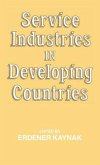


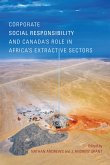
![Directory and Hand-book of the Meat and Provision Trades and Their Allied Industries for the United States and Canada [microform] Directory and Hand-book of the Meat and Provision Trades and Their Allied Industries for the United States and Canada [microform]](https://bilder.buecher.de/produkte/65/65502/65502624m.jpg)
